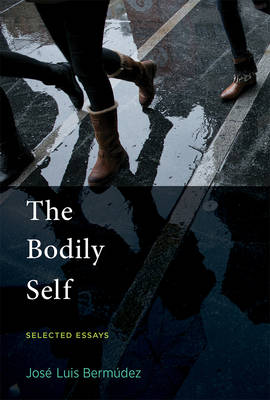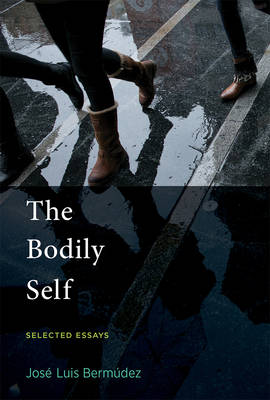
Bedankt voor het vertrouwen het afgelopen jaar! Om jou te bedanken bieden we GRATIS verzending (in België) aan op alles gedurende de hele maand januari.
- Afhalen na 1 uur in een winkel met voorraad
- In januari gratis thuislevering in België
- Ruim aanbod met 7 miljoen producten
Bedankt voor het vertrouwen het afgelopen jaar! Om jou te bedanken bieden we GRATIS verzending (in België) aan op alles gedurende de hele maand januari.
- Afhalen na 1 uur in een winkel met voorraad
- In januari gratis thuislevering in België
- Ruim aanbod met 7 miljoen producten
Zoeken
Omschrijving
Essays on the role of the body in self-consciousness, showing that full-fledged, linguistic self-consciousness is built on a rich foundation of primitive, nonconceptual self-consciousness. These essays explore how the rich and sophisticated forms of self-consciousness with which we are most familiar--as philosophers, psychologists, and as ordinary, reflective individuals--depend on a complex underpinning that has been largely invisible to students of the self and self-consciousness. José Luis Bermúdez, extending the insights of his groundbreaking 1998 book, The Paradox of Self-Consciousness, argues that full-fledged, linguistic self-consciousness is built on a rich foundation of primitive, nonconceptual self-consciousness, and that these more primitive forms of self-consciousness persist in ways that frame self-conscious thought. They extend throughout the animal kingdom, and some are present in newborn human infants. Bermúdez makes the case that these primitive forms of self-awareness can indeed be described as forms of self-consciousness, arguing that they share certain structural and epistemological features with full-fledged, linguistic self-consciousness. He offers accounts of certain important classes of states of nonconceptual content, including the self-specifying dimension of visual perception and the content of bodily awareness, considering how they represent the self. And he explores the general role of nonconceptual self-consciousness in our cognitive and affective lives, examining in several essays the relation between nonconceptual awareness of our bodies and what has been called our "sense of ownership" for our own bodies.
Specificaties
Betrokkenen
- Auteur(s):
- Uitgeverij:
Inhoud
- Aantal bladzijden:
- 312
- Taal:
- Engels
Eigenschappen
- Productcode (EAN):
- 9780262551083
- Verschijningsdatum:
- 6/02/2024
- Uitvoering:
- Paperback
- Formaat:
- Trade paperback (VS)
- Afmetingen:
- 152 mm x 229 mm
- Gewicht:
- 462 g

Alleen bij Standaard Boekhandel
+ 135 punten op je klantenkaart van Standaard Boekhandel
Beoordelingen
We publiceren alleen reviews die voldoen aan de voorwaarden voor reviews. Bekijk onze voorwaarden voor reviews.









